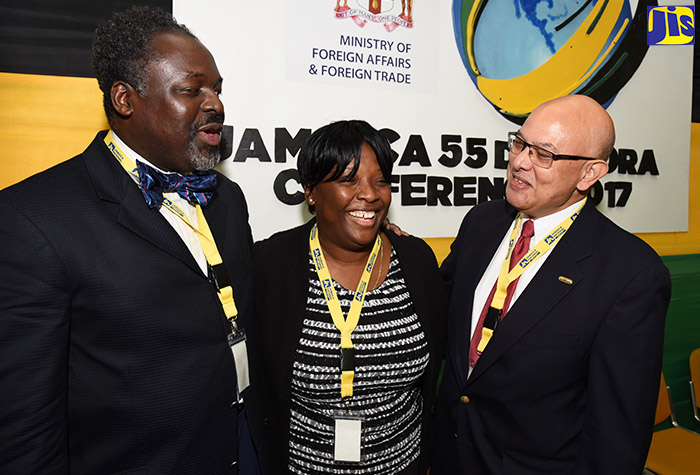Students Receiving Work Experience with Diaspora-Owned Technology Companies
By: , August 2, 2017The Key Point:
The Facts
- Task Force member, Kimone Gooden, told the JIS News that the initiative, introduced in 2016, pair students in Jamaica with a Diaspora mentor. Seven students benefited during the first year.
- Miss Gooden said the project was inspired by a member of the task force, who studied computing at UWI, and recognised the need for technology graduates to have practical experience for the global market.
The Full Story
Twelve software engineering students are receiving practical job experience by working with international companies over the summer.
This is under the ‘Calico Open Source Software Development Project,’ which is being undertaken by the Diaspora Technology Task Force in the United States in partnership with the Palisadoes Foundation.
Task Force member, Kimone Gooden, told the JIS News that the initiative, introduced in 2016, pair students in Jamaica with a Diaspora mentor. Seven students benefited during the first year.
She explained that the body works with the University of the West Indies (UWI) Computing Society to select students each summer, and give them a stipend to work on an open source software development project.
Miss Gooden noted that the students stay in Jamaica while they work on these projects.
“The Diaspora Technology Task Force is trying to emphasise that there is no need to try to go through migration and get a visa, as you have the resources here in Jamaica to support clients overseas,” she pointed out.
Miss Gooden said the project was inspired by a member of the task force, who studied computing at UWI, and recognised the need for technology graduates to have practical experience for the global market.
“When they go to school and learn the coding, we realize they do not have any experience to match that,” she pointed out, noting that the taskforce member “understood what it was to go overseas without that experience.”
Miss Gooden told JIS News that the most successful students at the end of the summer receive internships and sometimes job offers from Diaspora-owned technology companies.
She explained that sometimes these offers allow the new employees to stay in Jamaica, while in some cases it requires migration, noting that there was a recent participant in the project, who was required to be in Sri Lanka.
Applications for the project usually open in March of each year to university students, and selection takes place in May and June.
Meanwhile, Miss Gooden is inviting other technology professionals across the Diaspora to join the task force.




